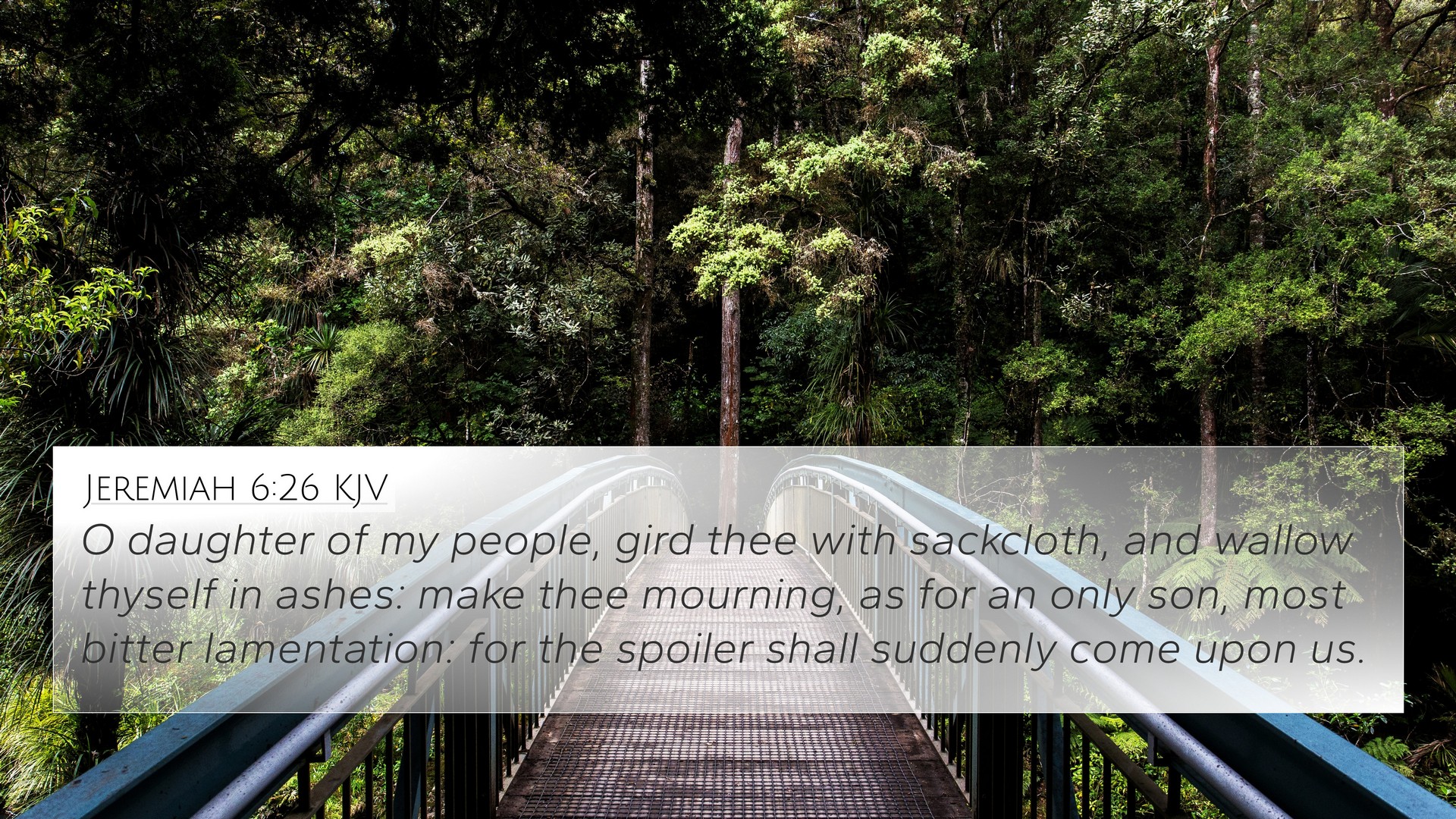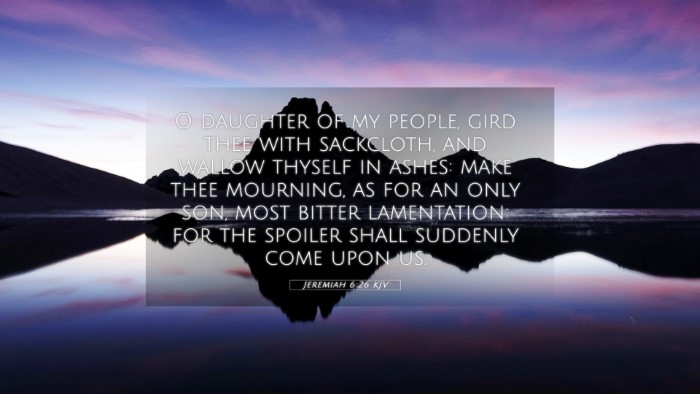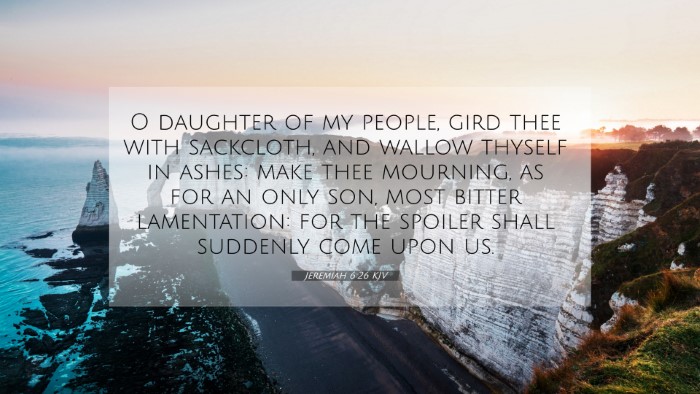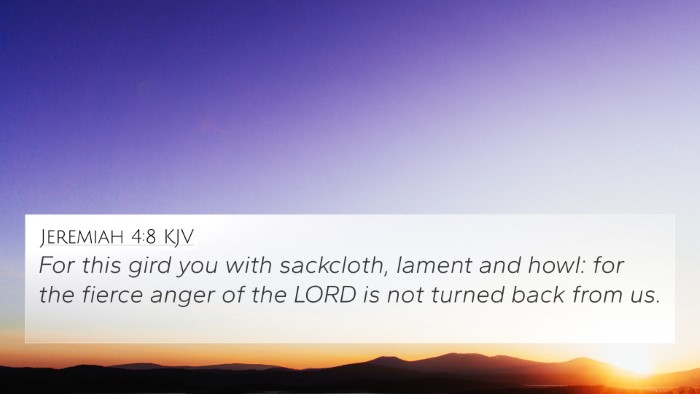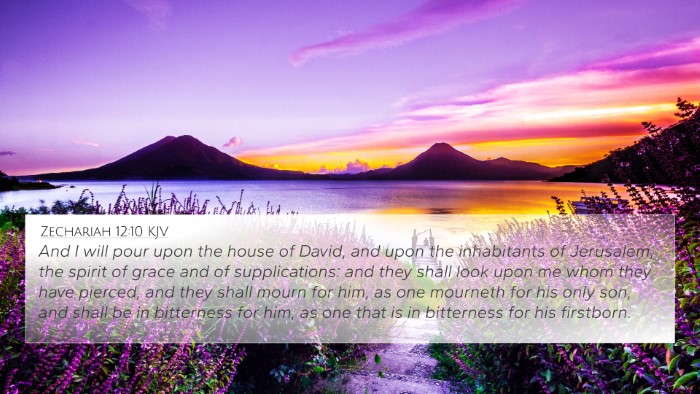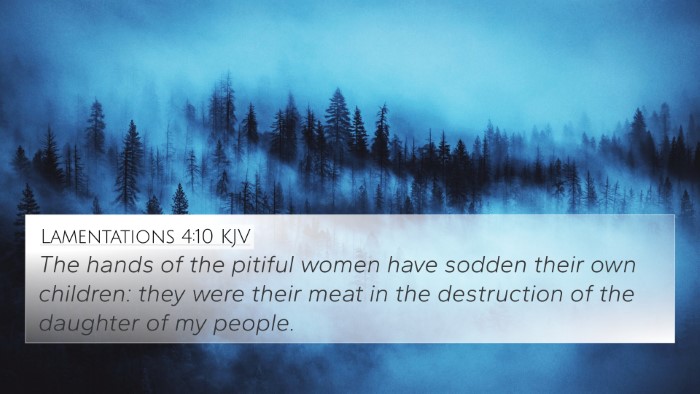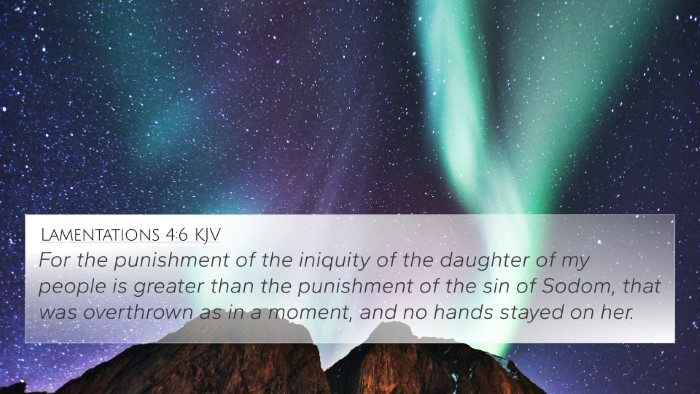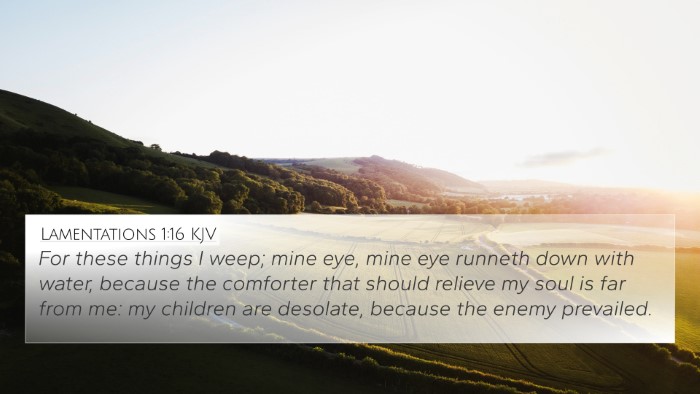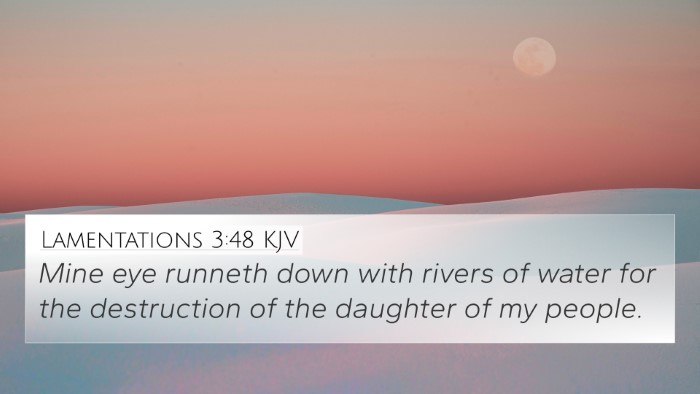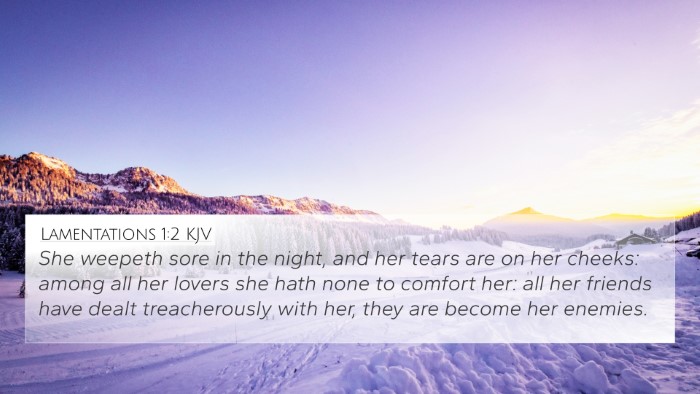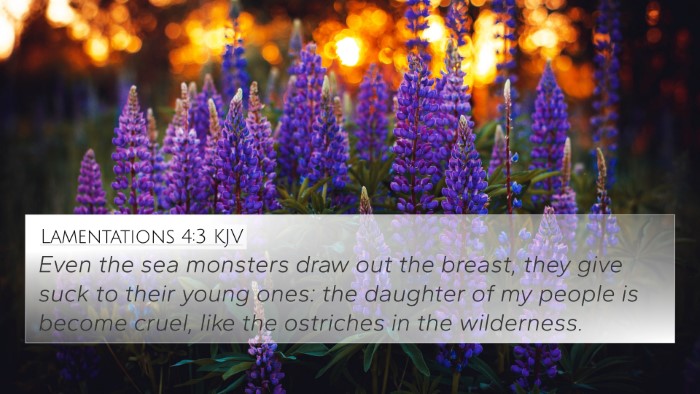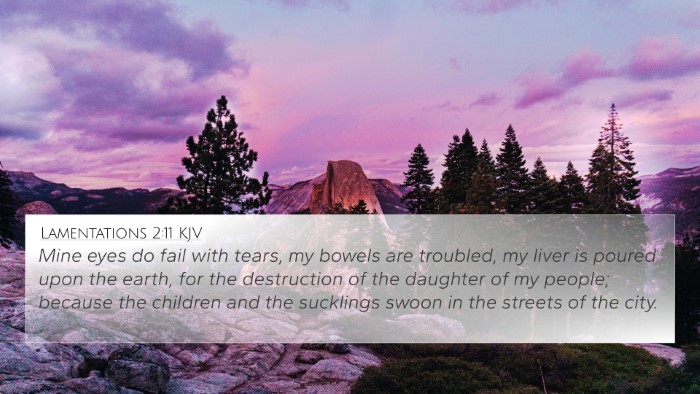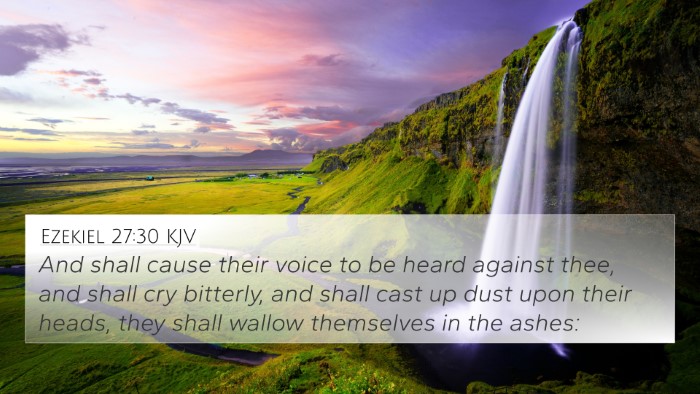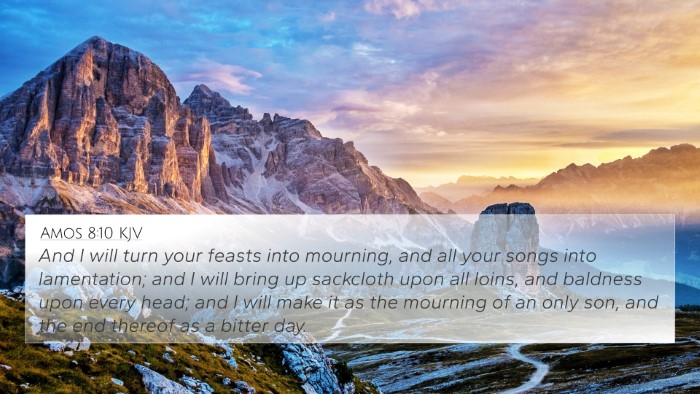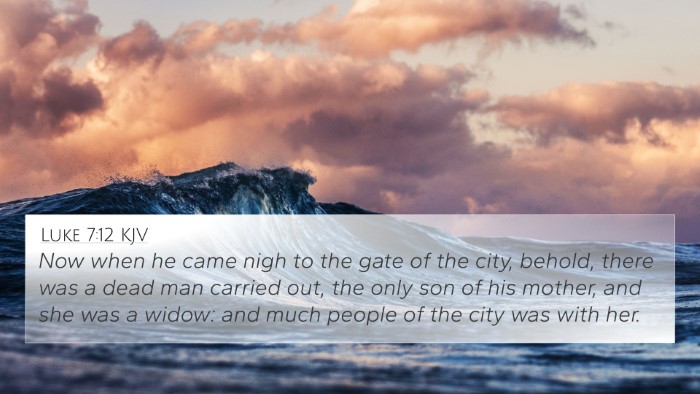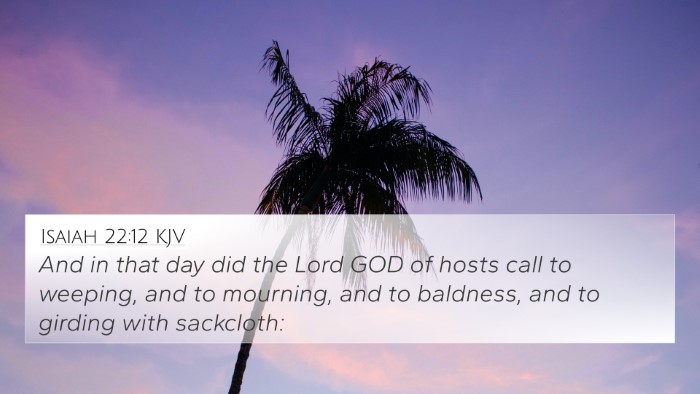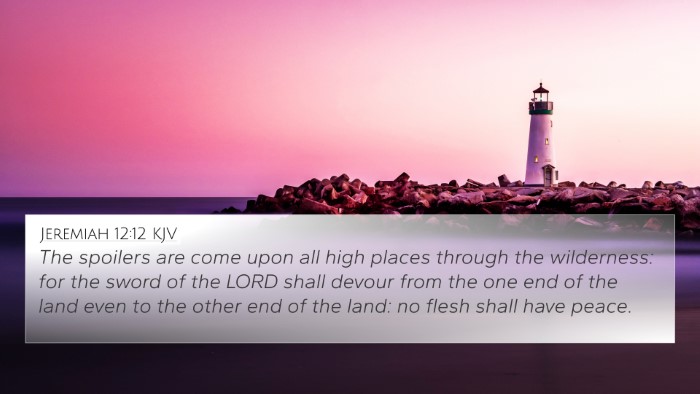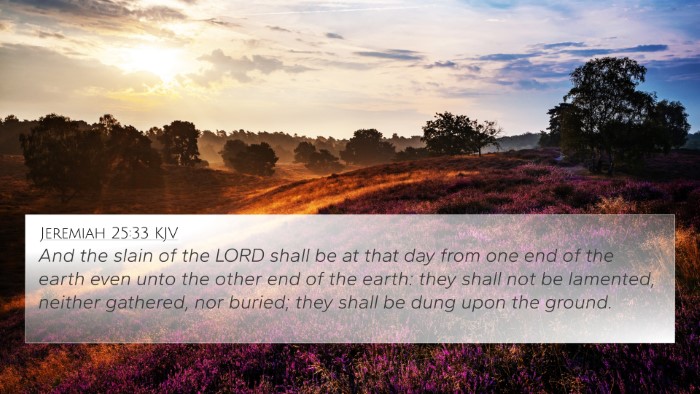Understanding Jeremiah 6:26
Jeremiah 6:26 states, "O daughter of my people, gird thee with sackcloth, and wallow thyself in ashes: make thee mourning, as for an only son, most bitter lamentation: for the spoiler shall suddenly come upon us." This verse captures a moment of deep lamentation and calls for repentance in light of impending judgment. The insights from various public domain commentaries shed light on the meaning and implications of this poignant scripture.
Exegesis and Context
The context of this verse is critical for understanding its meaning. Jeremiah, often referred to as the "weeping prophet," delivers messages of warning to the people of Judah as they face impending destruction due to their unfaithfulness to God. The admonition in this verse is stark; it encourages the people to mourn for their sins and the judgment that is to befall them.
Matthew Henry's Commentary
According to Matthew Henry, the use of sackcloth and ashes symbolizes a profound expression of grief and humility before God. It represents a heart that is contrite and recognizes the severity of the situation. The call to "gird thee with sackcloth" serves as a metaphor for preparing one's heart for repentance, acknowledging the sorrow of one's sinfulness. The phrase "as for an only son" indicates the depth of emotional response expected, akin to mourning for a great personal loss.
Albert Barnes' Notes
Albert Barnes elaborates that this call to mourning reflects the seriousness of the coming destruction. The imagery of "wallowing in ashes" suggests not only physical expressions of grief but also a spiritual acknowledgment of the pain caused by disobedience. Barnes connects this minute detail to other instances in Scripture, noting that such expressions were customary in times of national distress or personal grief. This external act of mourning is a necessary precursor to genuine repentance and restoration.
Adam Clarke's Commentary
Adam Clarke emphasizes that this verse serves not only as a warning but also as an invitation to return to God. The lamentation is not solely for the loss of life but for the spiritual decline of the nation. Clarke points out that the "spoiler" represents the Babylonian invaders, illustrating the imminent physical threat due to the people's moral and spiritual decay. The internal turmoil faced by the community is mirrored in their need for repentance, showcased by their mourning practices.
Thematic Bible Verse Connections
This verse can be cross-referenced with several other scriptures that discuss themes of mourning, repentance, and divine judgment:
- Job 2:12-13 - Job's friends come to mourn with him in sackcloth.
- Joel 1:13 - The call for the priests to lament and use sackcloth due to the devastation of the land.
- Matthew 5:4 - "Blessed are they that mourn: for they shall be comforted," which captures the principle of mourning leading to comfort.
- Ezekiel 18:30 - A similar call to repentance: “Therefore I will judge you, O house of Israel, every one according to his ways, saith the Lord God. Repent, and turn yourselves from all your offenses; so sin will not be your downfall.”
- Lamentations 1:12 - A poignant expression of national mourning and sorrow for sin.
- Amos 5:16-17 - Encouragement for genuine mourning for sin, correlating with the nation's spiritual state.
- 1 Peter 5:6 - A reminder to "humble yourselves, therefore, under God's mighty hand, that he may lift you up in due time,” which resonates with the themes of humility before the Lord found in Jeremiah 6:26.
Cross-Referencing Biblical Texts
By understanding the connections between these verses, one can engage in a comparative Bible verse analysis that reveals the broader biblical narrative surrounding sin, punishment, and redemption. The process of linking Bible scriptures enhances the interpretative experience, shedding light on themes of divine mercy and the necessity of repentance.
Tools for Bible Cross-Referencing
Utilizing various tools and resources can significantly aid in exploring Bible verses related to one another. Here are some key tools for effective Bible cross-referencing:
- Bible Concordance: An alphabetical list of words and phrases found in the Bible, useful for locating related verses.
- Bible Cross-Reference Guide: A compilation of scriptures cross-referenced according to themes and topics.
- Bible Reference Resources: Commentaries, dictionaries, and study guides that provide in-depth insights and connections.
- Comprehensive Bible Cross-Reference Materials: Allow readers to explore relationships between different scriptural texts thoroughly.
Identifying Connections Between Old and New Testament
Understanding cross-references not only helps in personal reflection but also enhances sermon preparation, theological studies, and personal devotion. For instance, recognizing the themes in Jeremiah echoed in New Testament scriptures illustrates the continuity of God's message throughout the scriptures.
Conclusion
Jeremiah 6:26 calls the people to a grave recognition of their sins and to a posture of mourning and repentance. By examining this verse alongside commentaries and related scriptures, one can grasp a deeper understanding of the consequences of turning away from God, as well as the hope of returning to Him through genuine sorrow for sin.
For those studying the Bible, employing a systematic approach to cross-referencing, such as utilizing a Bible concordance or a cross-reference Bible study, can uncover rich layers of meaning and connections across the text. This practice not only aids personal understanding but also enriches communal learning and faith-building.
